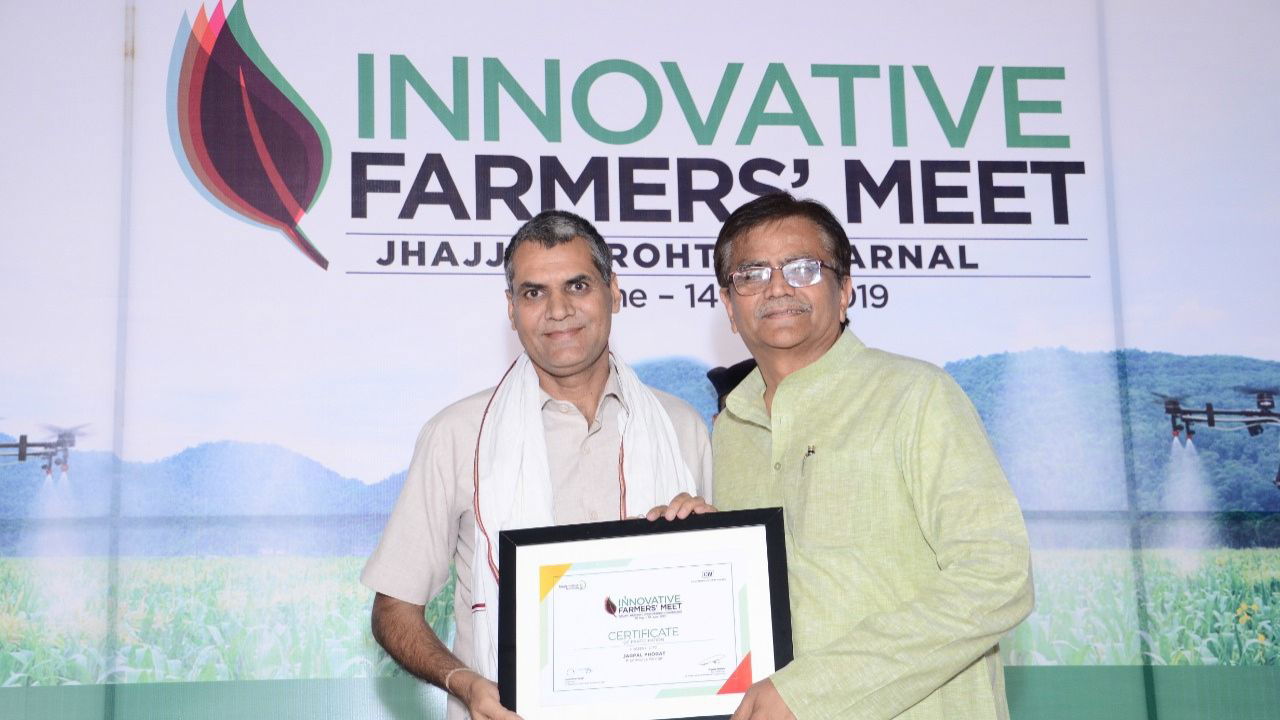Beekeeping Journey of Jagpal Singh Phogat: From Rs 1.5 Crore Turnover to Training Over 700 Farmers
Jagpal Singh Phogat, a progressive farmer from Manikpur in UP’s Chitrakoot district, is tackling the pressing challenges faced by India’s agricultural sector. With farmers grappling with issues such as water scarcity, erratic weather patterns, and the detrimental effects of chemical fertilizers, which nearly 99% of farmers rely on, the agricultural landscape is under severe strain. These compounded factors have resulted in reduced crop yields, increased vulnerability to climate change, and a decline in environmental health. Despite the existence of government support schemes, Jagpal believes these measures have fallen short of addressing the widespread struggles of farmers.
“The current situation of most of our farmers makes me feel bad. Our farmers must be wealthy," he emphasizes. Committed to transforming these challenges into opportunities, Jagpal is leading initiatives that empower farmers and promote sustainable practices, demonstrating that resilience and innovation can pave the way for a brighter future in agriculture.

While traditional practices like crop cultivation, dairy, and poultry farming remain prevalent, beekeeping offers a promising new income stream. By producing honey, wax, and other by-products, beekeeping increases farmers’ revenue and enhances crop pollination, boosting agricultural productivity and supporting environmental sustainability. With its low initial investment and high-profit potential, beekeeping presents a dynamic business model poised to revitalize rural economies and herald a new era of sustainable agriculture.
Jagpal Singh Phogat: Man Behind the Movement
Jagpal Singh Phogat, who dedicated over 15 years to education, observed the challenges that farmers face daily and sought to make a difference. "Given my background in agriculture, I conceived the idea of beekeeping. It requires a one-time investment but offers multiple benefits to our farmers," he shares. His transition from teaching English at a private school to beekeeping marked a significant shift, driven by his desire to address the challenges faced by small-scale farmers. "I was a teacher for 15 years, and then I saw that farming needed innovation. Beekeeping was the answer."

Promise of Beekeeping
Beekeeping is not just an agricultural practice; it's a commercial model with vast potential. Even farmers who don't own land can engage in beekeeping and generate income from honey and other by-products. India is currently the fifth-largest producer of honey in the world, indicating a significant market opportunity for farmers. "Beekeeping can provide a steady income for entire families. It encourages farmers to think like entrepreneurs once they master the craft," says Jagpal Singh Phogat.
Jagpal's journey is a testament to the profitability of beekeeping. "Personally, my turnover was Rs 1.5 crores last year. I am doing bee farming in Jammu, Haryana, Rajasthan, and Uttar Pradesh. I deploy bee boxes in these states, and all of these boxes give me additional income. I have a team of over 30 people who work with me in these states. A small farmer like me, with just 2.5 acres of land, can make Rs 1.5 crores a year, which proves how profitable bee farming is," he shares.
Beekeeping: Spreading the Knowledge
Jagpal not only practices beekeeping but has also trained over 700 people in the craft. He collaborates with The Art of Living's Sri Sri Institute of Agricultural Sciences and Technology (SSIAST) to extend the reach of this sustainable practice. SSIAST has already trained over 2.2 million people across India in natural farming techniques. "With the help of our volunteer base, we are setting up stalls at various locations to showcase the benefits of bee farming," Jagpal explains. These initiatives aim to empower farmers, making them self-sufficient and showing them the potential of beekeeping as a viable business model.
Quick Tips for Aspiring Beekeepers
For farmers interested in beekeeping, Jagpal offers some practical advice:
Engage in scientific beekeeping to maximize benefits.
Grow pollen-producing varieties and other by-products, as they are in high demand in the market.
Start small, with at least 10 bee boxes, which will not only help with crop pollination but also provide honey for personal use.

Jagpal Singh Phogat's success story exemplifies how beekeeping can transform the agricultural landscape in India. By championing this sustainable practice, he not only enhances his own profitability but also empowers countless farmers across the country. Through training and collaboration with organizations like the Sri Sri Institute of Agricultural Sciences and Technology, Jagpal is paving the way for a new generation of farmers who can embrace beekeeping as a viable and environmentally friendly business model. His journey serves as an inspiring reminder that innovative solutions, such as bee farming, can lead to financial stability and a brighter future for India’s agricultural community.

댓글
댓글 쓰기